Embracing China’s “New Normal”
It is clear by now that China’s economy is set to slow in the years to come, although economists disagree about how much and for how long.
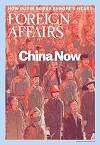 Courtesy: Foreign Affairs
Courtesy: Foreign Affairs
It is clear by now that China’s economy is set to slow in the years to come, although economists disagree about how much and for how long.
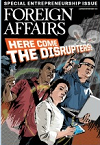 Courtesy: Foreign Affairs
Courtesy: Foreign Affairs
With India-U.S. relations on an upswing, Robert Boggs, Professor, the Near East South Asia Center and Nicholas Burns, former U.S. Undersecretary of State, debate the possibilities and deliverables of the bilateral
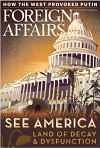 Courtesy: Foreign Affairs
Courtesy: Foreign Affairs
Prime Minister Modi's prompt acceptance of President Obama's invitation to meet him in Washington shows his clear intent to jump-start India-U.S. relations which gives Obama a unique opportunity to reciprocate
 Courtesy: Foreign Affairs
Courtesy: Foreign Affairs
Why does politics now exercise so much influence over markets? The answer starts with the breakdown of economic growth models that relied on high commodity prices, low interest rates, and other global windfalls
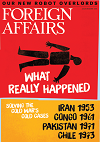 Courtesy: Foreign Affairs
Courtesy: Foreign Affairs
In the book, The Blood Telegram, the author Gary J. Bass puts the spotlight on the “significant complicity” of U.S. President Nixon and his national security adviser, Kissinger, in Bangladesh's "forgotten genocide"
 Courtesy: Foreign Affairs
Courtesy: Foreign Affairs
The U.S. is focusing on the Asia-Pacific region as part of its rebalancing strategy. However, it will not be able to sustain its leadership in the region through military might alone
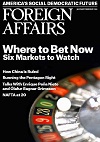 Courtesy: Foreign Affairs
Courtesy: Foreign Affairs
When the average growth rate in emerging markets hit over seven percent a year in the last decade, forecasters hyped its implications. Today, more than five years after the financial crisis of 2008, the euphoria seems to have waned
 Courtesy: Foreign Affairs
Courtesy: Foreign Affairs
The author argues that Western observers need to entertain the possibility that institutions of democracy, capitalism, and secularism develop exceptional features in non-Western settings
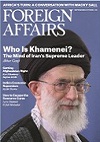 Courtesy: Foreign Affairs
Courtesy: Foreign Affairs
The U.S. needs rethink its tendency to blindly follow the 'COIN' doctrine.
 Courtesy: Foreign Affairs
Courtesy: Foreign Affairs
In Indian politics, caste and religion still matter, but in many states, economic competence now matters more. Things look bad in New Delhi, but the capital is not the whole of India.